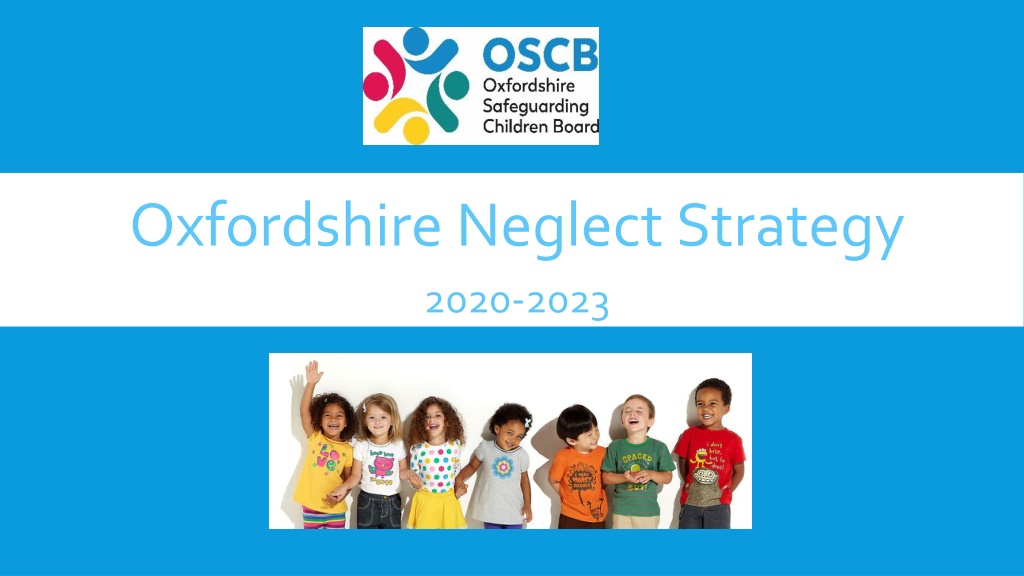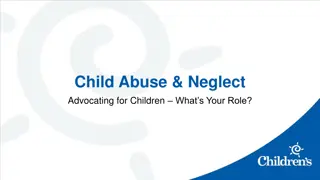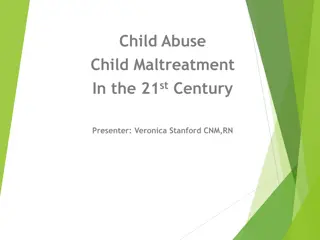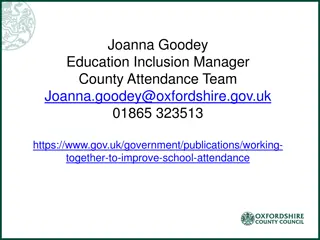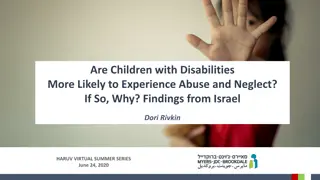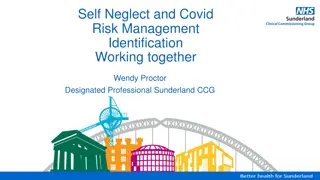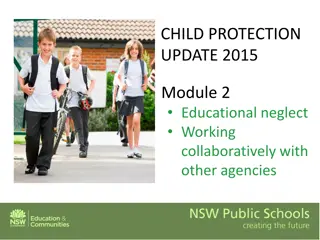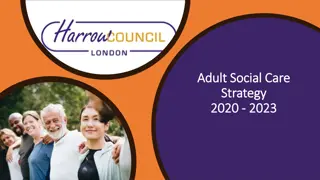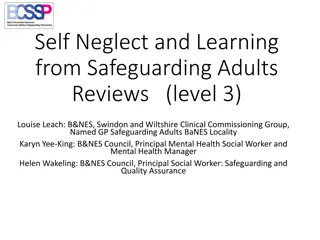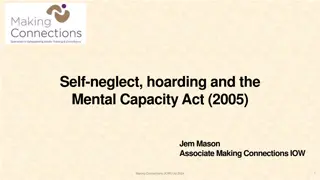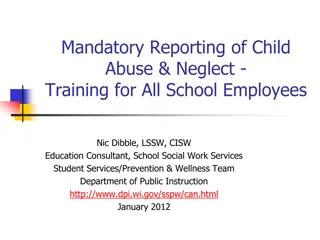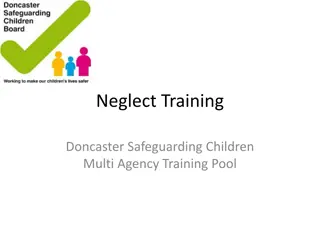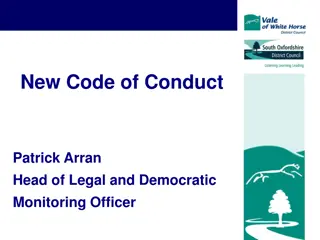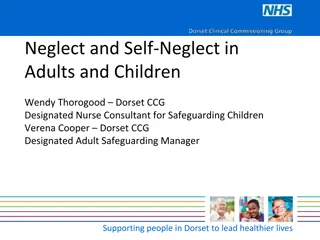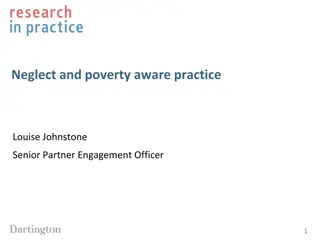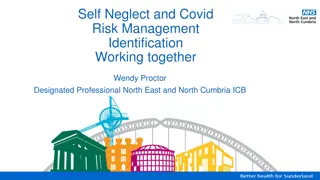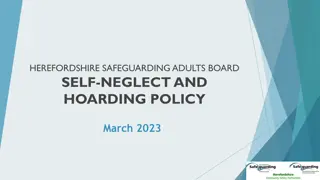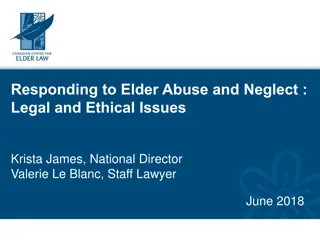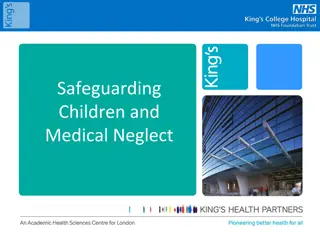Oxfordshire Neglect Strategy 2020-2023 Summary
The Oxfordshire Neglect Strategy 2020-2023 aims to reduce the impact of neglect on children's well-being by identifying it early within families. The strategy emphasizes understanding the child's experience, supporting families for change, and intervening early to prevent long-term damage. Feedback from children & young people highlights the importance of consistent relationships and being listened to. The strategy draws upon various sources, including reviews and audits, to improve outcomes for neglected children in Oxfordshire.
Download Presentation

Please find below an Image/Link to download the presentation.
The content on the website is provided AS IS for your information and personal use only. It may not be sold, licensed, or shared on other websites without obtaining consent from the author. Download presentation by click this link. If you encounter any issues during the download, it is possible that the publisher has removed the file from their server.
E N D
Presentation Transcript
Oxfordshire Neglect Strategy 2020-2023
OUR VISION AND GUIDING PRINCIPLES We need to understand and act on the lived experience of the child who is suffering neglectful circumstances and where possible support their family to change. A local child who suffered extreme neglect would like all professionals to remember: The future will always change We aim to reduce the impact of neglect on the emotional and physical well-being of children in Oxfordshire by identifying it earlier within families as part of our early help and preventative approach and through partnership working to support parents to enable change. We are intervening early because we know how damaging the long-term impact of neglect is to children.
WHAT CHILDREN AND YOUNG PEOPLE HAVE TOLD US I couldn't have been happier with my experience with most services I use. Ranging from mental health to health services. Mental health services - too long to wait for consultation. No one listens because every adult believes they know better than every child in the world. Key2 Futures Oxford was just fantastic always on the other end of the phone when needed and Mayday Trust - I have a coach that meets me every week and checks if I'm ok most days. In March 2020 the Children s Trust Board undertook a second audit of how well children and young people feel they are supported by the range of services set up to meet their needs. These quotes selected from 150 responses powerfully support the need for consistent relationships, the importance of being listened to and sharing information. Schools and other services (NHS etc) need to share more information between each other in order to help students more.
OTHER SOURCES DRAWN UPON TO CREATE THE OXFORDSHIRE NEGLECT STRATEGY: The strategic direction of our work on neglect has been incrementally influenced by the following: Ofsted Inspection of Local Authority Children s Services in April 2018, Neglect Peer Review in July 2018 led by Directors of Children s Services, Ofsted Focused Visit to Oxfordshire in February 2020, Partnership Learning Review relating to two living children, who suffered extreme neglect, despite being known to universal services, which reported to the Child-safeguarding Practice Review Sub Group in March 2020.A learning summary and Case Study for schools has been developed from this review and can be accessed on the OCSB website Multi-agency neglect audits undertaken in 2018/19/20. Our Neglect Dashboard which reports on performance at each quarterly meeting of the Neglect Strategy Group. The highest number of children on plans are on plans for Neglect and not enough of these children are seen at the early help stage There is a stark consistency to the findings from all this activity which has led to the refresh of our strategy and a renewed commitment to improvement.
HOW SCHOOLS HAVE HELPED SO FAR 2 primary and 1 secondary school have been part of the Neglect Pilot for schools since September 2020 The three schools have written Neglect action plans and have been evaluating these throughout the Autumn and Spring term On-line meetings with colleagues from OCSB and CEF teams have taken place frequently to develop resources which will be meaningful, useful and relevant within a school setting. The tools developed have been designed to dove-tail into existing school development plans to ensure that Neglect has a raised profile within the school, but does not create additional workload to staff
HOW SCHOOLS WILL BE INVOLVED MOVING FORWARD: All schools will be asked to have a named Neglect Lead Schools will be asked to complete an audit to identify strengths and areas for development around neglect. There is a supplementary questionnaire to ascertain staff s knowledge and understanding of neglect. Once the audit tool has been completed, the identified areas for development can be written into existing action plans for whole-school development and CPD. There is no need to create extra evidence files to support this. There will be questions related to Neglect included within the Annual 157/175 Safeguarding Report. These will then be used to develop best practice across the county. The work schools do will be pivotal in being able to access the right tools and support, at the right time to strengthen their evidence base in relation to the tipping point for when safeguarding action is required to tackle neglect.
ANY QUESTIONS? Next Steps: Please let us know if you would like your school to be involved and how we can support you Resources will be available from Neglect Challenge Event in June have we made a difference? Further reading and information, including the Learning Summary Review and Case studies, can be found here
